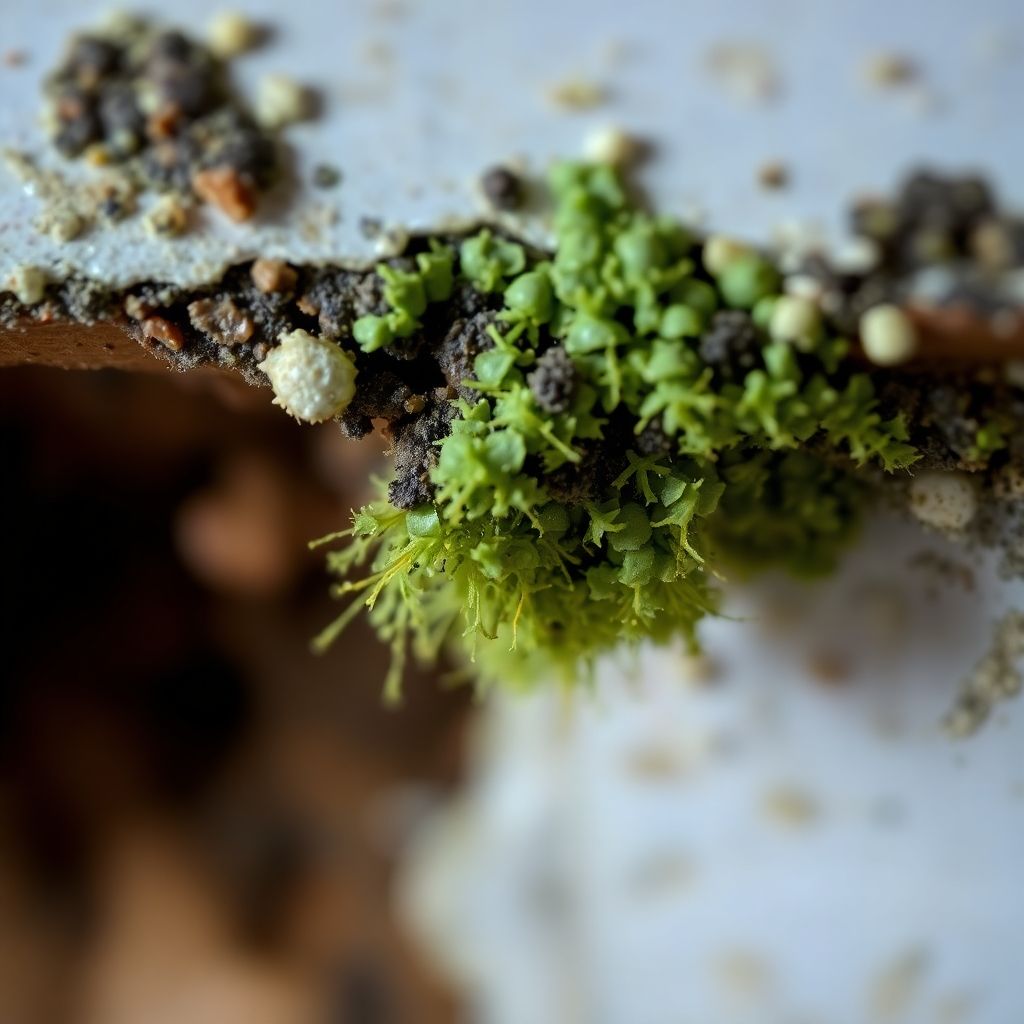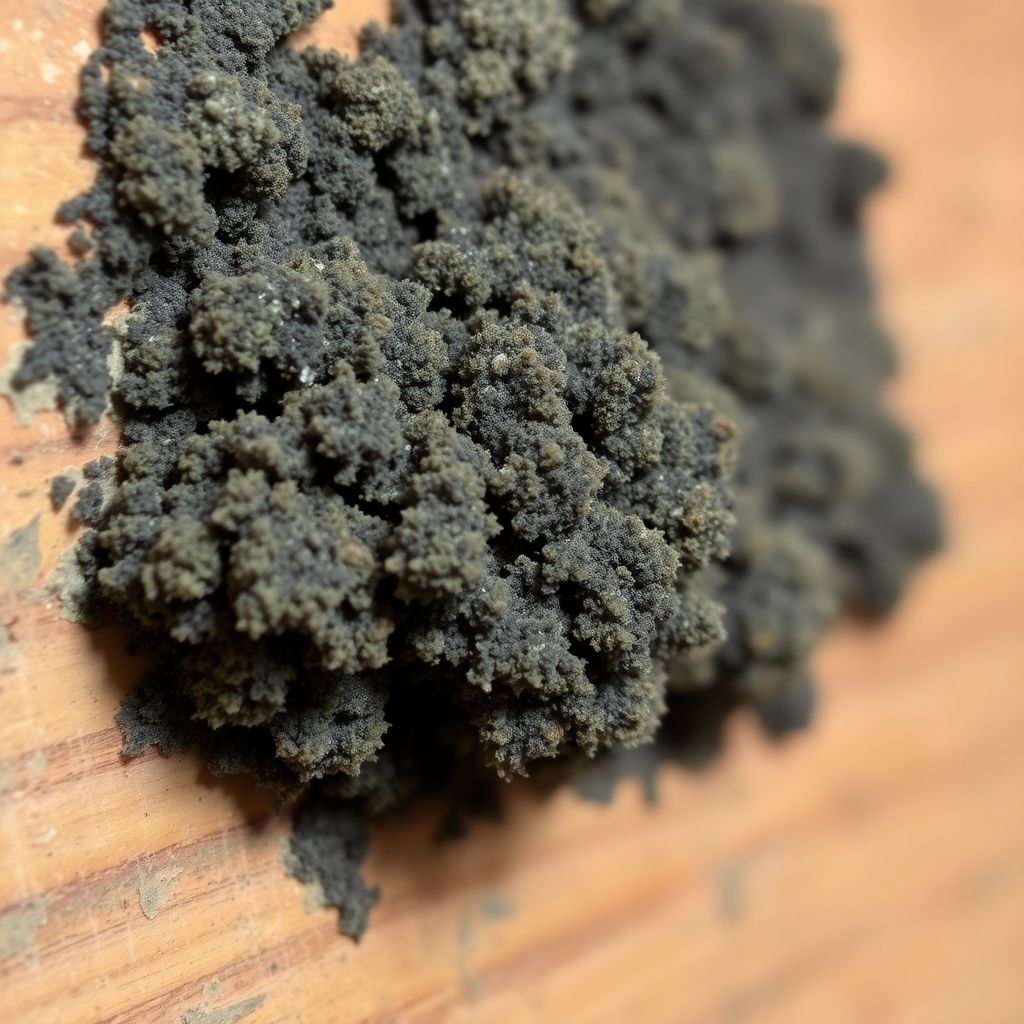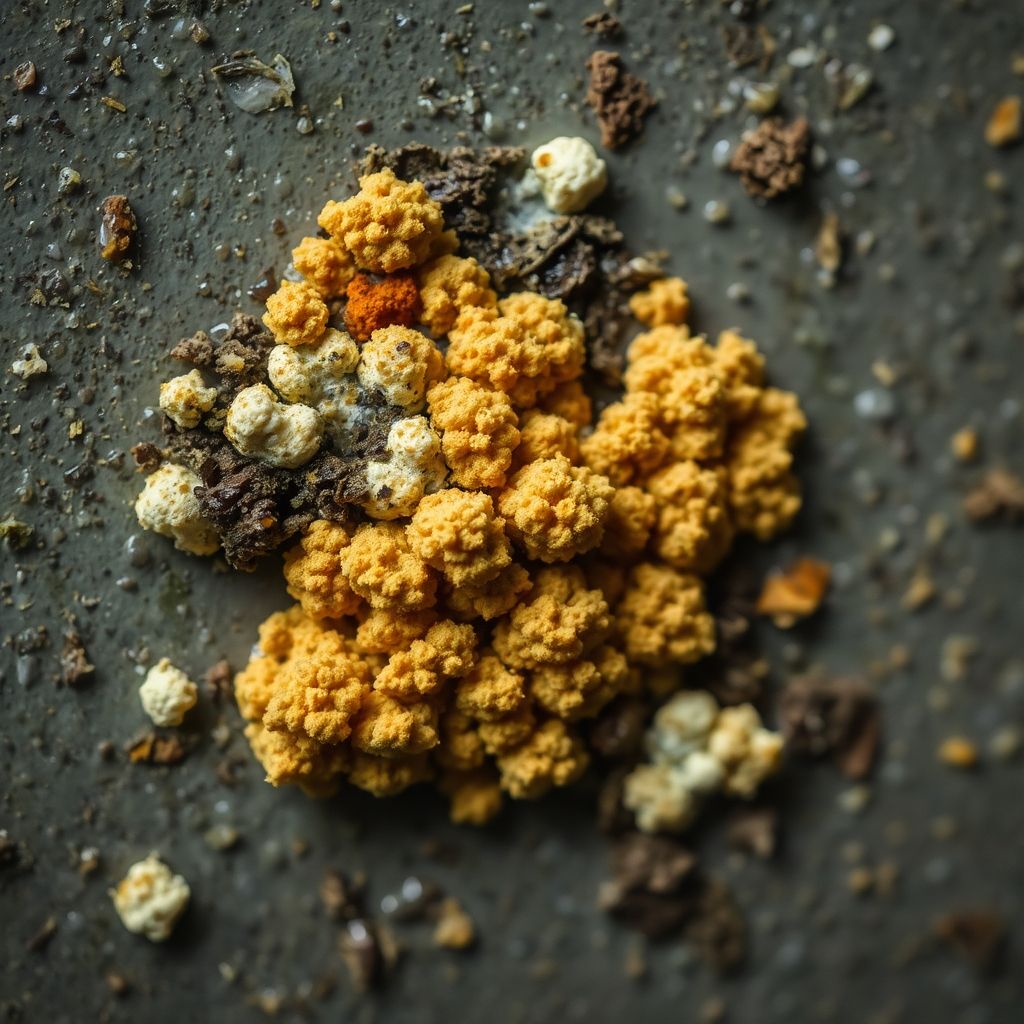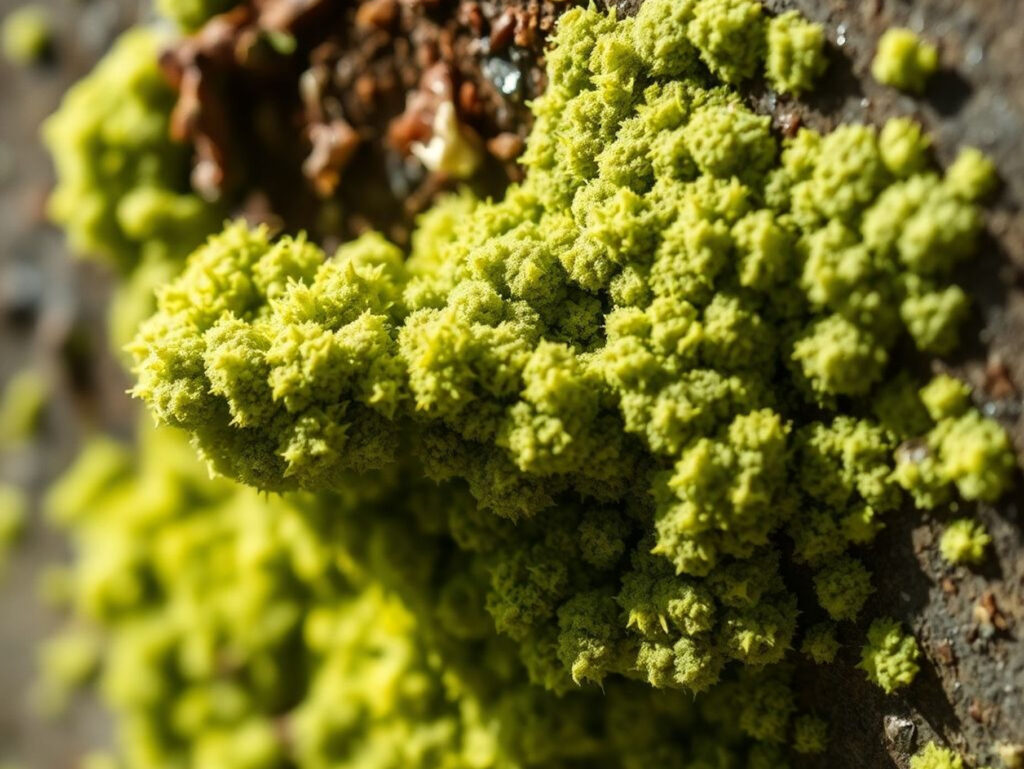Key Takeaways
-
Mold can cause respiratory issues and allergic reactions in sensitive individuals.
-
Black mold exposure may lead to infections in those with weakened immune systems.
-
Regular mold testing in Oak Park, IL, is essential for identifying and addressing mold problems early.
-
Preventing mold growth involves controlling humidity and ensuring proper ventilation.
-
Long-term mold exposure can result in chronic health issues, including respiratory and mental health conditions.
Symptoms And Causes
What Are The Symptoms Of Black Mold Exposure?
Okay, so you’re worried about black mold? Let’s talk symptoms. It’s not always obvious, but there are some common signs to watch out for. The most frequently reported symptoms include things like sneezing, a persistent cough, and that lovely nasal congestion that just won’t quit.
Here’s a quick rundown:
-
Sneezing fits
-
Coughing, especially if it’s dry
-
Nasal congestion that feels never-ending
-
Postnasal drip, that annoying tickle in the back of your throat
-
Red, irritated eyes
Black mold can also make asthma symptoms worse. If you’re already dealing with asthma, keep an eye out for:
-
Wheezing, that whistling sound when you breathe
-
Shortness of breath, feeling like you can’t get enough air
-
A dry cough coupled with chest tightness
Can Black Mold Make You Sick?
Yes, black mold can make you sick, but it’s not quite the horror story some people think. It’s more about how your body reacts to the mold spores. Think of it like allergies – some people are super sensitive, while others barely notice it.
Exposure to black mold can trigger a range of health issues, primarily related to respiratory and allergic responses. The severity of these reactions varies significantly from person to person, depending on individual sensitivities, the extent of mold exposure, and the duration of exposure. It’s not a guaranteed illness, but it’s definitely something to take seriously.
How Harmful Is Black Mold?
How harmful is black mold, really? Well, it depends. For some, it’s just a minor annoyance, like seasonal allergies. For others, especially those with existing respiratory issues or weakened immune systems, it can be a bigger problem. The real danger comes from long-term exposure, which can lead to chronic respiratory issues.
Here’s a simple breakdown:
-
Allergic reactions: These are the most common, with symptoms like sneezing, runny nose, and skin rashes.
-
Respiratory issues: Mold can irritate your lungs, leading to coughing, wheezing, and shortness of breath.
-
Infections: Rare, but possible, especially in people with compromised immune systems.
|
Risk Factor
|
Severity Level
|
Common Symptoms
|
|---|---|---|
|
Mild Mold Exposure
|
Low
|
Sneezing, mild cough, itchy eyes
|
|
Moderate Mold Exposure
|
Medium
|
Persistent cough, nasal congestion, skin rash
|
|
Severe/Prolonged Exposure
|
High
|
Difficulty breathing, chronic fatigue, infections
|
Living With Mold Exposure
When Should I See a Healthcare Provider?
Okay, so you’ve been dealing with some funky smells and maybe even spotted some mold in your place. When is it time to actually see a doctor? Well, if you’re experiencing persistent allergy-like symptoms, like a never-ending runny nose, constant sneezing, or a cough that just won’t quit, it’s probably a good idea to get checked out. Don’t wait until you’re struggling to breathe or feeling super run down. It’s always better to be safe than sorry, especially if you have any underlying respiratory issues.
How Do You Detox From Black Mold Exposure?
So, you’ve been exposed to black mold, and now you’re wondering if you need to do some kind of crazy detox. Honestly, the best thing you can do is get away from the mold! There’s not a lot of solid evidence that special detoxes are really effective for mold exposure. Focus on supporting your body’s natural detoxification processes.
-
Drink plenty of water.
-
Eat a healthy diet.
-
Get enough sleep.
If you’re really concerned, talk to your doctor. They can assess your specific situation and recommend the best course of action.
What Questions Should I Ask A Healthcare Provider?
Alright, you’re heading to the doctor about possible mold exposure – good move! But what should you ask? Here are a few ideas:
-
Could my symptoms be related to mold exposure?
-
“What tests can be done to determine if I have a mold allergy or sensitivity?”
-
“What are the treatment options for my symptoms?”
-
“Are there any long-term health risks associated with this type of exposure?”
Having these questions ready can help you get the most out of your appointment and feel more in control of your health.
Health Risks Of Mold Exposure
Mold. It’s everywhere, and while some types are harmless, others can pose significant health risks, especially with prolonged exposure. It’s not just about allergies; mold can trigger a range of health problems, some more serious than others. Let’s break down the main concerns.
Respiratory Issues
Mold exposure is notorious for causing respiratory problems. The most common issues include coughing, wheezing, and shortness of breath. Mold spores can irritate the airways, leading to inflammation and difficulty breathing. People with pre-existing conditions like asthma or COPD are particularly vulnerable. It’s like a constant irritant making it harder to breathe, and over time, it can really take a toll on your lungs.
Allergic Reactions
Allergic reactions are probably the most well-known health effect of mold. Symptoms can range from mild to severe and include:
-
Skin rashes
-
Itchy eyes
-
Runny nose
-
Sneezing
These reactions happen because your immune system overreacts to the mold spores, treating them as dangerous invaders. It’s similar to having hay fever, but the trigger is mold instead of pollen. For some, it’s just a nuisance, but for others, it can be debilitating.
Infections In Immunocompromised Individuals
For people with weakened immune systems, mold exposure can lead to serious infections. This is because their bodies aren’t able to fight off the mold spores effectively. These infections can affect the lungs, skin, and even spread to other parts of the body. It’s a scary thought, but it highlights the importance of keeping mold out of environments where vulnerable people live.
Mold exposure isn’t something to take lightly. While healthy individuals might only experience mild symptoms, the risks are much higher for those with respiratory conditions, allergies, or compromised immune systems. Taking steps to prevent mold growth and address any existing mold problems is crucial for protecting your health.
Mold Testing In Oak Park, IL

Mold can be sneaky. You might suspect it’s there, but you need to confirm it before taking action. That’s where mold testing comes in, especially if you’re in a place like Oak Park, IL, where older homes and damp basements can be prime breeding grounds for mold.
Importance Of Mold Testing
Why bother with mold testing? Well, for starters, it’s the only way to know for sure if you have a mold problem. You might see some discoloration or smell something funky, but that doesn’t always mean mold. Testing identifies the type of mold present, which is important because some molds are more harmful than others. Plus, a professional test can pinpoint the source of the moisture that’s causing the mold in the first place. It’s like detective work for your house!
How To Choose A Mold Testing Service
Okay, so you’re convinced you need a test. How do you pick a good service? Here’s what I’d look for:
-
Certifications: Make sure the company is certified by a reputable organization. This shows they know what they’re doing.
-
Experience: How long have they been in business? Experience matters when it comes to finding hidden mold.
-
Reputation: Check online reviews and ask for references. What do other people say about their service?
-
Clear Pricing: Get a detailed quote upfront. You don’t want any surprises when the bill comes.
-
Proper Equipment: Do they use up-to-date equipment and techniques?
Getting a few quotes from different companies is always a good idea. Don’t just go with the cheapest option; consider the overall value and the company’s reputation.
What To Expect During Mold Testing
So, what happens when the mold testers show up? Here’s a general idea:
-
Inspection: They’ll start by visually inspecting your home, paying close attention to areas where mold is likely to grow.
-
Sampling: They’ll take samples of the air and surfaces in your home. This might involve swabbing surfaces or using air sampling devices.
-
Lab Analysis: The samples are sent to a lab for analysis. This is where they identify the type and amount of mold present.
-
Report: You’ll receive a detailed report outlining the findings, including the type of mold, its concentration, and recommendations for remediation.
It usually takes a few days to get the lab results back, but once you have them, you’ll be in a much better position to tackle the mold problem head-on.
Preventing Mold Growth
Controlling Humidity Levels
Okay, so, first things first: humidity. High humidity is basically an open invitation for mold to throw a party in your house. The goal is to keep your indoor humidity between 30% and 50%. I know, easier said than done, right? But seriously, a dehumidifier can be a lifesaver, especially in basements or bathrooms. Also, make sure your AC is working properly, because that also helps to keep humidity down. I even bought a cheap little humidity monitor from Amazon, just to keep an eye on things. It’s kind of like having a weather station in your living room, but for mold prevention.
Proper Ventilation
Ventilation is super important. Think about it: mold loves stagnant air. So, you need to get that air moving! Open windows when you can, especially after showering or cooking. Use exhaust fans in the bathroom and kitchen religiously. I even crack a window in my closet sometimes, just to air things out. If you’re doing laundry, make sure the dryer is vented to the outside, not into your house. Trust me, you don’t want all that moisture hanging around. It’s all about creating airflow and not letting moisture build up in the first place.
Regular Home Inspections
Okay, this might sound like a pain, but it’s worth it. Regularly check your home for any signs of water damage or mold growth. Look under sinks, around windows, and in the basement. If you see any discoloration or smell something funky, investigate! The earlier you catch a problem, the easier it is to fix. I usually do a quick walk-through every couple of months, just to be safe. It’s like a little treasure hunt, but instead of finding gold, you’re finding potential mold problems. And honestly, finding a small leak early on is way better than dealing with a full-blown mold infestation later.
Preventing mold growth is a lot easier than dealing with mold removal. By controlling humidity, ensuring proper ventilation, and conducting regular inspections, you can create a less hospitable environment for mold and protect your home and health.
Mold Removal Strategies
DIY Mold Removal Techniques
So, you’ve found some mold. Before you panic, let’s talk DIY. For small areas (less than 10 square feet), you might be able to tackle it yourself. A mixture of bleach and water is a common go-to, but always wear protective gear like gloves, a mask, and eye protection.
Here’s a quick rundown:
-
Ventilate the area well.
-
Scrub the moldy surface with your cleaning solution.
-
Let it sit for a bit, then rinse and dry thoroughly.
Remember, DIY is only for minor mold issues. If it’s widespread or you’re sensitive to mold, call in the pros.
When To Hire Professionals
Okay, so when does DIY turn into “call a professional”? If the mold covers a large area (over 10 square feet), if it keeps coming back, or if you’re experiencing health issues, it’s time to bring in the experts. Professionals have specialized equipment and training to safely and effectively remove mold, especially in tricky spots like inside walls or HVAC systems. Plus, they can identify the source of the moisture problem to prevent future growth. It might cost more upfront, but it can save you a lot of headaches (and health problems) in the long run.
Post-Removal Safety Tips
Alright, the mold is gone – now what? Don’t just breathe a sigh of relief and forget about it. The key is prevention. Make sure the area is completely dry and well-ventilated. Consider using a dehumidifier to keep moisture levels down. And most importantly, fix the source of the moisture that caused the mold in the first place. Keep an eye on the area for any signs of regrowth, and don’t hesitate to take action if you see something suspicious. Think of it as mold maintenance – a little effort now can save you from a bigger problem later.
Long-Term Effects Of Mold Exposure
Chronic Respiratory Conditions
Long-term exposure to mold can really mess with your lungs. It’s not just about a cough that won’t quit; it can lead to more serious problems. Think about it: constant irritation can turn into chronic bronchitis or even worsen asthma. It’s like your lungs are always fighting something, and over time, they just get worn out. People who already have respiratory issues are especially at risk, but even healthy individuals can develop problems if they’re exposed to mold for long enough. It’s definitely something to take seriously.
Impact On Mental Health
Mold exposure isn’t just physical; it can affect your mental well-being too. Living in a moldy environment can cause:
-
Increased stress levels
-
Anxiety
-
Depression
The constant musty smell and the worry about health problems can really take a toll. Plus, some studies suggest that mold toxins might directly affect brain function, leading to mood swings and cognitive issues. It’s easy to dismiss these effects, but they can significantly impact your quality of life.
Potential Autoimmune Responses
There’s growing concern about whether mold exposure can trigger autoimmune responses in some people. Autoimmune diseases are when your immune system mistakenly attacks your own body. While the research is still ongoing, some studies suggest a link between mold exposure and the development or worsening of autoimmune conditions. It’s not clear exactly how mold might cause this, but it could involve chronic inflammation and immune system dysregulation. It’s a complex area, and more research is needed to fully understand the connection.
Mold Allergies And Sensitivities

Identifying Mold Allergies
So, you think you might be allergic to mold? It’s a pretty common problem, actually. Mold allergies happen when your immune system overreacts to mold spores, which are basically everywhere – inside and outside. Identifying a mold allergy can be tricky because the symptoms often mimic other allergies or respiratory issues.
-
Skin prick tests: A doctor exposes your skin to small amounts of different molds to see if you react.
-
Blood tests: These measure the amount of specific antibodies in your blood that indicate a mold allergy.
-
Symptom tracking: Keeping a diary of when and where your symptoms occur can help identify triggers.
Managing Symptoms
Okay, so you’ve figured out you’re allergic to mold. Now what? Managing the symptoms is key to feeling better. It’s not always easy, but there are definitely things you can do to make life more bearable. First off, try to limit your exposure to mold as much as possible.
-
Use a dehumidifier to keep indoor humidity low.
-
Clean moldy surfaces with appropriate cleaners.
-
Improve ventilation in damp areas like bathrooms and basements.
Living with mold allergies can be a real pain, but it doesn’t have to control your life. Small changes in your environment and some over-the-counter meds can make a big difference. Don’t be afraid to experiment and find what works best for you.
Treatment Options
Alright, let’s talk treatment. If you’re struggling with mold allergies, there are a few options your doctor might suggest. It really depends on how severe your symptoms are and what’s causing them.
-
Antihistamines: These can help relieve sneezing, itching, and runny nose.
-
Decongestants: These can help clear up nasal congestion.
-
Nasal corticosteroids: These can reduce inflammation in your nasal passages.
Environmental Factors Contributing To Mold
Mold isn’t just some random occurrence; several environmental factors play a big role in its growth. Understanding these factors is key to preventing mold problems in your home.
Moisture Sources
Moisture is the number one thing mold needs to thrive. Obvious sources include leaks from roofs or plumbing, but don’t forget about less obvious culprits like condensation. Condensation often forms on cold surfaces, like pipes or windows, especially in humid environments. Even small, consistent drips or dampness can create the perfect breeding ground for mold.
Addressing moisture issues promptly is crucial. Ignoring even a small leak can lead to significant mold growth over time, impacting both your home’s structure and your health.
Temperature Conditions
Temperature also matters. Mold generally prefers temperatures between 40°F and 100°F. This is why it’s so common indoors. While you can’t control the outside weather, managing indoor temperatures can help. Keeping your home consistently cool and dry can make it less hospitable to mold.
Building Materials
The materials your home is made of can also affect mold growth. Mold loves to grow on organic materials like wood, drywall, and paper. These materials provide a food source for the mold. Using mold-resistant building materials during construction or renovation can significantly reduce the risk of mold problems later on.
Here’s a quick rundown:
-
Wood: Highly susceptible if damp.
-
Drywall: Especially prone if paper-backed.
-
Concrete: Less susceptible, but can still support mold growth if contaminated with organic matter.
Legal And Health Regulations

Local Mold Regulations
Okay, so when it comes to mold, things can get a little tricky legally. In Oak Park, like many places, there aren’t always super specific mold regulations on the books. Instead, it often falls under broader housing codes or property maintenance rules. These codes usually require landlords to maintain safe and habitable living conditions, which can include addressing mold issues. It’s kind of a gray area, but if mold is making a place unlivable, those codes often kick in.
Health Guidelines For Mold Exposure
When it comes to health guidelines, there’s no official “safe” level of mold exposure defined by federal agencies like the EPA or CDC. What they do say is that mold growth should be prevented and remediated. If you’re dealing with mold, it’s good to keep a few things in mind:
-
Reduce moisture: Mold loves damp places, so fixing leaks and improving ventilation is key.
-
Clean up mold: Small areas can be cleaned with soap and water, but bigger problems might need professional help.
-
Watch for symptoms: If you’re experiencing health issues, see a doctor.
It’s important to remember that everyone reacts differently to mold. Some people might not notice anything, while others can have serious health problems. If you’re concerned, it’s always best to err on the side of caution.
Tenant Rights Regarding Mold
Tenant rights can vary a lot depending on where you live. Generally, if mold is making your apartment or rental home unsafe, you have a right to a safe living environment. This means:
-
Notification: Inform your landlord in writing about the mold issue.
-
Reasonable Time: Give them a reasonable amount of time to fix the problem.
-
Legal Options: If they don’t take action, you might have options like withholding rent (check local laws first!), breaking the lease, or even taking legal action.
It’s always a good idea to check your local and state laws, because they can really change things. And if you’re not sure about your rights, talking to a lawyer or a tenant advocacy group can be a big help.
Community Resources In Oak Park
Local Health Departments
When dealing with mold exposure, knowing where to turn can make a big difference. Oak Park has a few options when it comes to local health departments. These departments can provide information on mold-related health risks, offer guidance on testing and remediation, and sometimes even conduct inspections. It’s worth checking their websites or giving them a call to see what services they provide.
Support Groups
Dealing with the health effects of mold can be isolating. Finding a support group can help you connect with others who understand what you’re going through. Sharing experiences and tips can be incredibly helpful. These groups can offer:
-
Emotional support
-
Practical advice
-
A sense of community
Educational Workshops
Want to learn more about mold, how to prevent it, and what to do if you find it? Oak Park sometimes hosts educational workshops on these topics. These workshops can be a great way to get reliable information from experts. They often cover:
-
Mold identification
-
Prevention techniques
-
Health impacts
It’s always a good idea to check the local community center or library for upcoming events. These workshops can empower you to take control of your indoor environment and protect your health.
Research And Studies On Mold Exposure

Recent Findings
Mold exposure is a hot topic in the scientific community, and new studies are popping up all the time. Recent research has started to focus on the specific types of mold and their unique effects on human health. For example, some studies are looking at how different species of Aspergillus impact people with asthma, while others are investigating the link between mold exposure and cognitive function. It’s a complex field, and we’re still learning a lot.
Ongoing Research
There are a bunch of research projects happening right now that are trying to figure out the long-term effects of mold exposure. Scientists are looking at everything from respiratory illnesses to neurological problems. Some of the key areas of focus include:
-
The impact of mold on children’s health.
-
The effectiveness of different mold remediation techniques.
-
The role of genetics in mold sensitivity.
It’s important to remember that research takes time. Many of these studies are still in their early stages, but the initial findings are definitely interesting and could have a big impact on how we deal with mold in the future.
Implications For Public Health
The findings from mold exposure research have some pretty big implications for public health. If we can better understand the risks associated with mold, we can develop better strategies for prevention and treatment. This could include things like:
-
Developing stricter building codes to prevent mold growth.
-
Creating more effective public awareness campaigns.
-
Improving access to healthcare for people with mold-related illnesses.
Mold exposure can lead to various health issues, including allergies and respiratory problems. Many studies have looked into how mold affects our health, showing that even small amounts can be harmful. If you want to learn more about the effects of mold and how to protect yourself, visit our website for helpful information and resources!
Wrapping It Up
In summary, mold exposure can lead to a range of health issues, especially for those with allergies or respiratory problems. If you notice symptoms like sneezing, coughing, or nasal congestion, it might be time to check your living space for mold. While not everyone will have severe reactions, it’s best to take precautions. Keeping your home dry and well-ventilated can help prevent mold growth. If you suspect mold is affecting your health, don’t hesitate to reach out to a healthcare professional. Staying informed and proactive is key to keeping yourself and your loved ones safe.
Frequently Asked Questions
What are the signs of black mold exposure?
Common signs of black mold exposure include sneezing, coughing, runny nose, and itchy eyes.
Can black mold cause health problems?
Yes, black mold can cause health issues, especially for people with allergies or asthma.
Is black mold dangerous?
Black mold can be harmful, but it is not necessarily more dangerous than other types of mold.
When should I visit a doctor?
You should see a doctor if you have symptoms that affect your daily life or if you suspect mold exposure.
How can I recover from mold exposure?
To recover, remove yourself from the moldy area and consider taking medications to relieve your symptoms.
What questions should I ask my doctor about mold?
Ask about how to diagnose mold allergies and what treatments are available.
How quickly can mold affect my health?
The speed at which mold affects you depends on your allergies; some may react right away, while others may take longer.
Who is more at risk from black mold?
People with allergies, asthma, or weakened immune systems are more likely to experience severe symptoms from black mold.

